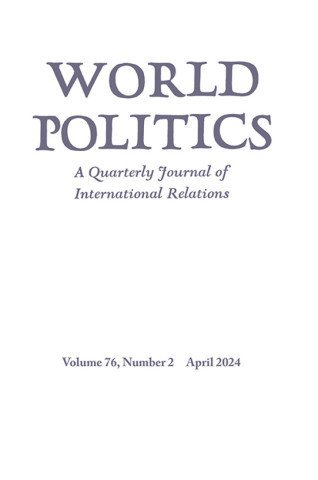The Popularity of Authoritarian Leaders
IF 2.5
1区 社会学
Q1 INTERNATIONAL RELATIONS
引用次数: 4
Abstract
How do citizens in authoritarian states feel about their leaders? While some dictators rule through terror, others seem genuinely popular. Using the Gallup World Poll’s panel of more than one hundred-forty countries in 2006–2016, the authors show that the drivers of political approval differ across regime types. Although brutal repression in overt dictatorships could cause respondents to falsify their preferences, in milder informational autocracies, greater repression actually predicts lower approval. In autocracies as in democracies, economic performance matters and citizens’ economic perceptions, while not perfectly accurate, track objective indicators. Dictators also benefit from greater perceived public safety, but the authors find no such effect in democracies. Covert censorship of the media and the Internet is associated with higher approval in autocracies—in particular, in informational ones—but ratings fall when citizens recognize censorship. In informational autocracies, executive elections trigger a ratings surge if there is leader turnover, but, unlike in democracies, reelected autocrats enjoy little honeymoon.威权主义领袖的声望
独裁国家的公民如何看待他们的领导人?虽然一些独裁者通过恐怖统治,但其他独裁者似乎真的很受欢迎。利用盖洛普世界民意调查在2006-2016年对140多个国家进行的小组调查,作者表明,政治支持的驱动因素因政权类型而异。尽管公开独裁政权中的残酷镇压可能会导致受访者伪造自己的偏好,但在温和的信息独裁政权中,更大的镇压实际上预示着更低的支持率。在独裁国家和民主国家,经济表现很重要,公民的经济认知虽然不完全准确,但也会跟踪客观指标。独裁者也从更大的公共安全感中受益,但作者在民主国家中没有发现这种影响。对媒体和互联网的秘密审查与独裁政权——尤其是信息独裁政权——的更高认可度有关,但当公民认识到审查制度时,评分就会下降。在信息独裁国家,如果领导人更替,行政选举会引发收视率飙升,但与民主国家不同,连任的独裁者几乎没有蜜月期。
本文章由计算机程序翻译,如有差异,请以英文原文为准。
求助全文
约1分钟内获得全文
求助全文
来源期刊

World Politics
Multiple-
CiteScore
8.40
自引率
0.00%
发文量
24
期刊介绍:
World Politics, founded in 1948, is an internationally renowned quarterly journal of political science published in both print and online versions. Open to contributions by scholars, World Politics invites submission of research articles that make theoretical and empirical contributions to the literature, review articles, and research notes bearing on problems in international relations and comparative politics. The journal does not publish articles on current affairs, policy pieces, or narratives of a journalistic nature. Articles submitted for consideration are unsolicited, except for review articles, which are usually commissioned. Published for the Princeton Institute for International and Regional Affairs
 求助内容:
求助内容: 应助结果提醒方式:
应助结果提醒方式:


